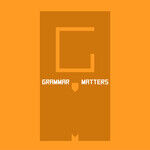Two months before the stock market collapse of 1929, the economist Roger Babson wrote, "[A] crash is coming and it's going to be terrific."
Terrific? The Crash of '29 and the Great Depression that followed were certainly not good things. Did Babson somehow think this impending catastrophe would provide a welcome corrective to the stock market bubble?
Hardly. He was simply using the original meaning of "terrific" — "inducing terror, frightful." At the time he spoke, however, this older meaning was fading, and the newer meaning "magnificent, wonderful" was rapidly emerging.
How did this happen?
"Terrific" first appeared in English during the 1600s with the meaning "frightful." During the late 1800s, people began picking up on the intensity of "terrific" and applying it to phenomena that were extreme but not necessarily frightening, as in "a terrific noise."
During the 1920s, hip young flappers and their boyfriends furthered this trend by using "terrific" with an ironic twist to mean "excellent," as in "a terrific party." (Today, millennials deploy this same kind of reversal when they use "sick" to mean "great.")
Because this new, positive meaning of "terrific" was widespread when Babson made his prediction, his warning may have left a few people scratching their heads, though this probably doesn't explain why so few heeded it.
In recent years, internet wags have been circulating an urban legend that Hollywood publicists unwittingly helped popularize the positive meaning of "terrific" by using it to promote the 1933 film "King Kong."
But my own internet search of movie posters and advertisements for the film reveals no evidence of this. I found "Unique!" "Thrilling!" "Startling!" and a lass (actress Fay Wray), but, alas, no "Terrific!"
In fact, the word "terrific" appears only once in the film's screenplay, and it's used in the Babsonian, horrifying sense. A description of a scene early in the film reads, "A terrific fight now ensues between Kong and the three-horned beasts."
The shift in the meaning of "terrific" exemplifies a linguistic process called "amelioration" — the "improvement" of a word's meaning from negative to positive.
"Nice," for instance, once meant "stupid, foolish." "Pretty" once meant "crafty, cunning." "Sophisticated" once meant "corrupted, adulterated."
The changes in the meanings of these words remind us that our language, like King Kong himself, is always being re-invented.
Rob Kyff, a teacher and writer in West Hartford, Conn., invites your language sightings. Send your reports of misuse and abuse, as well as examples of good writing, via e-mail to [email protected] or by regular mail to Rob Kyff, Creators Syndicate, 737 3rd Street, Hermosa Beach, CA 90254.






View Comments